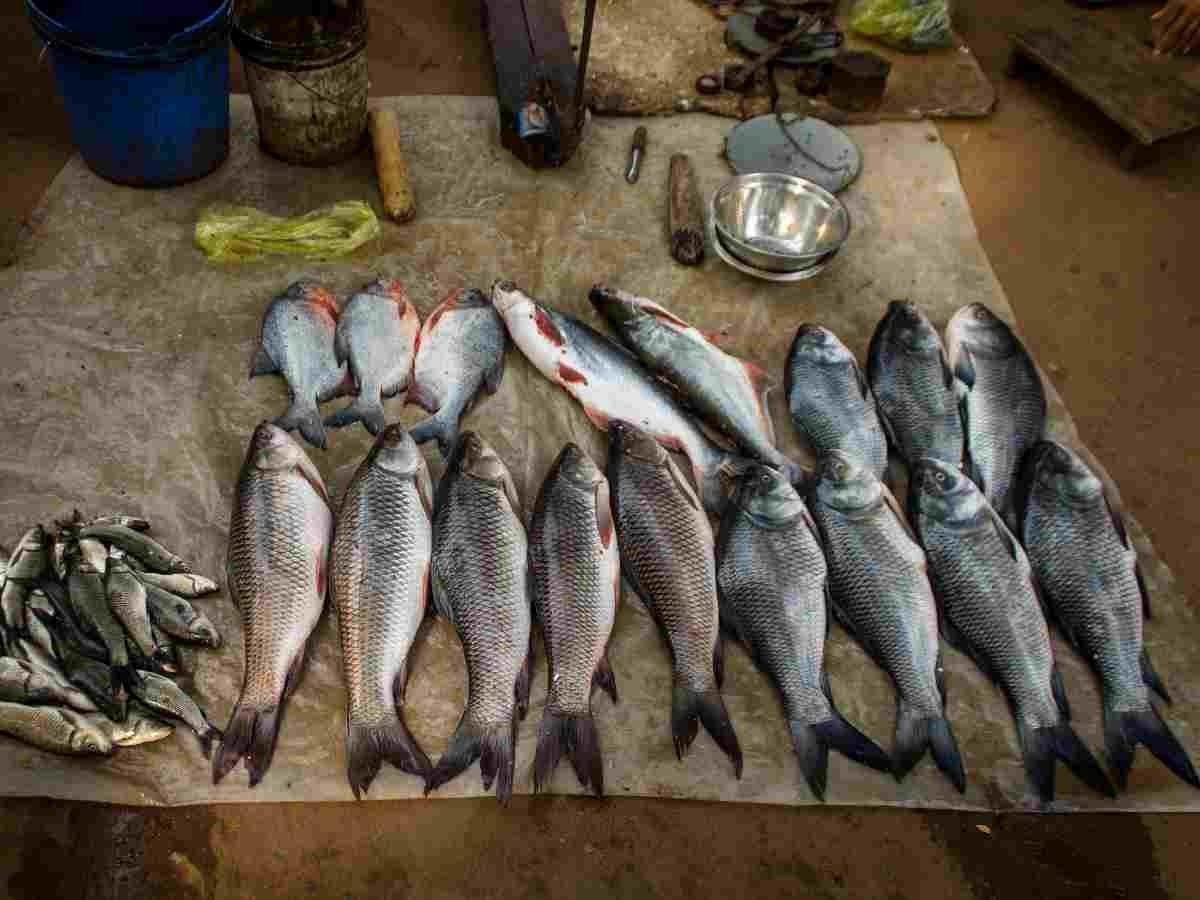
Hilsa fish
Delhi: The fallout of the political upheaval in Bangladesh is being felt in Indian kitchens, particularly due to the adverse impact on the trade of fish between the two countries. Hilsa, or Padma Ilish fish, is predominantly imported by India from Bangladesh.
With the supply being hit, the price of Hilsa fish – which makes a popular dish in Bengali households – has shot up from Rs 1,200 to Rs 3,000 per kg.
Arijit Basu, a resident of Chittaranjan Park in Delhi, said, “Bengalis cannot live without Hilsa because its taste is unlike any other fish. That is why, despite it being the most expensive, we eat Hilsa fish regularly.”
A fish shop owner in CR Park, Divyendu Das, said that the supply of Hilsa from Bangladesh has halted. “We are selling the stock that we had bought and stored earlier. In this season, the demand is high and the supply has reduced, that is why the rate is increasing,” he said.
Traders said that about 60 quintals of fish are sold every month in Delhi’s CR Park, of which at least one-third is Padma Ilish fish. Now, the ongoing crisis in Bangladesh is burning a hole in the pockets of Padma Ilish lovers in India.
A fish trader, Dinesh Das, said that since supplies of the fish have been closed off, it has become more usual to notice a black market of Hilsa forming in the national capital.
Also Read: Sheikh Hasina returns to Delhi seeking asylum after nearly 50 years
“People are selling the fish in black (market). Usually, what would sell at around Rs 1,000 per kilogram is now being sold at Rs 1,600 for around 800-900 grams, while if someone wants two kilograms, they are having to pay Rs 3,000. However, these rates are for the good fish, while you can get fish for Rs 1,000, but they will be of bad quality and the experience will not be the same,” he said.
Renu Patro, a resident of CR Park, said that the previous year the fish available at the market was much cheaper. “Last year, the fish was cheaper. I used to get them for around Rs 1,000 per kilo, but now it’s Rs 2,000 per kilo. All of this because there are no fish in the sea,” he said.
What sets the Bangladeshi variant of the Hilsa fish apart from the Kolkata, or Indian, variant is its smaller size and stronger smell. According to Divyendu, the smaller size is deceptive, as he explains the fish as — “Chhota hai par dhamaaka hai!”
“It is the smell that makes it more delicious,” he said.
Similarly, the fish found an ardent fan in Biman Das, a professor by profession, who exclaimed that despite the fish being filled with bones, it trumped other fish with ease just because of its taste. “It has a lot of bones, more than the average fish, but despite that, the taste is unparalleled. They are caught when they travel from the sea to the rivers to lay their eggs while they swim through what is called meetha paani (sweet water),” he said.
Despite the rise in the rate, Arijit Basu, a resident of CR Park, said that he would keep buying the fish. “You cannot put a price tag on good things. If I used to have it once a week, now I will just have to eat it once in two weeks or once a month,” he said.
Basu added that it would be beneficial for everyone if Bangladesh regains normalcy. “Sometimes, for the good things in life, you have to pay a higher price, but I want Bangladesh to return to normalcy so that we can get the fish at reasonable rates once again,” he said.
Presently, the Hilsa fish is coming from either Orissa, West Bengal, or from the old stock that had been stored before the political turmoil in Bangladesh.
The story was first published by Newslaundry on August 23, 2024
On the principle of 'Sarvajan Hitaya, Sarvajan Sukhaya' -- Welfare for all, Happiness for all…
With hundreds reported missing in Delhi this year, this guide explains how families can use…
The case came to light after a 35-year-old woman from Panipat alleged that she had…
During the investigation, CCTV footage helped identify the suspects, according to Delhi Police
The launch took place during the inauguration of the Delhi Police Exhibition Hall at Connaught…
The 28-year-old factory owner was taken to Satyawadi Raja Harish Chandra Hospital in Delhi, while…